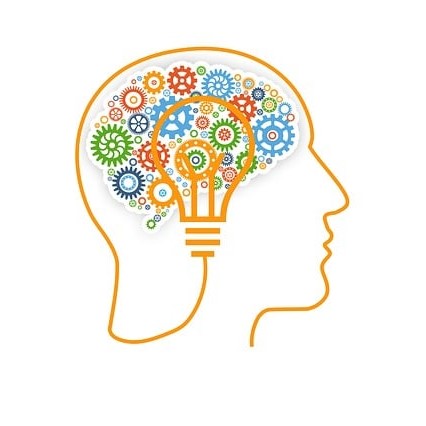Is Dyslexia a Disability?
Written by Kristin Vito, M.Ed., C-SLDS
Published on May 22, 2025
As a lifelong disorder that impacts a person’s spelling, writing, and reading abilities, dyslexia is considered a disability in the United States. Though dyslexia is lifelong, its negative effects differ in severity and can be reduced with effective, evidence-based interventions. If you’re interested in learning more about why dyslexia is considered a disability, take a moment to review our guide to dyslexia’s status as a disability, how it affects those with it, and why proper treatment is essential.
Is Dyslexia Considered a Disability?
Dyslexia is a language-based learning disability characterized by difficulties with fluent and/or accurate word recognition. Essentially, dyslexia makes it harder for the brain to process written language, affecting one’s ability to read, write, and spell. The disability can make it harder to form sentences when discussing more complex ideas. Additionally, dyslexia may affect a person’s ability to remember words and their meanings.
In the Diagnostic and Statistical Manual of Disorders 5 (DSM-5), dyslexia is classified as a Specific Learning Disorder (SLD). SLDs are characterized by one or more impairments in written expression, math, or reading.
Is Dylexia Legally Considered a Disability? What Rights Do People With Dyslexia Have?
In the United States, individuals with dyslexia are protected by the Americans with Disabilities Act (ADA), the Individuals with Disabilities Education Act (IDEA), and Section 504 of the Rehabilitation Act of 1973.
The ADA defines a disability as a mental or physical impairment that substantially limits one or more major life activities. Since dyslexia fits under this definition, the ADA protects those with the learning disorder from unjustified discrimination.
IDEA ensures that any student with a disability can receive an Individualized Education Program (IEP) that provides a clear description of the services provided to the student. Section 504 of the Rehabilitation Act of 1973 prohibits programs and activities that receive federal funding through the U.S. Department of Education from discriminating against students with disabilities. This law is commonly used in legal cases where a student may require accommodations but may not have been provided with an IEP.
Is Dyslexia a Disability Caused by Vision Issues?
Contrary to popular belief, those with dyslexia do not see words, letters, or numbers backward. Instead, dyslexia is a language-based disorder hallmarked by speech-sound and spelling-pattern processing difficulties.
These difficulties mean that a person with dyslexia reads using different and less efficient pathways in their brain than a typical reader. Those with reading disorders do not benefit from vision training but instead from evidence-based reading instruction such as Lexercise.
Why Is Dyslexia Considered a Disability? The Science Behind Dyslexia

Functional magnetic resonance imaging (fMRI) allows scientists to view various activation patterns in the brain during reading. It does this by recording blood flow to different areas while a person is actively decoding. Imaging has shown that dyslexic readers often use alternative, compensatory pathways.
Reading using these alternative pathways and regions is not as efficient and automatic, which causes struggles with decoding and fluency. Slow and laborious oral reading and poor spelling are often evident in those with untreated dyslexia. Based on these difficulties, dyslexia is considered a learning disability.
With proper interventions, though, the brain activation patterns of people with dyslexia can change, allowing them to become more proficient readers. While reading struggles are easier to remediate at a younger age, a person can significantly strengthen their literacy skills at any age with the correct evidence-based intervention.
Is Dyslexia Genetic?

Dyslexia can run in families. A recent study shows 42 different genetic causes linked to dyslexia. Researchers believe up to 70% of cases of dyslexia are due to heredity. But reading struggles are not entirely based on genetic causes. Health, family, school, and community also contribute to reading proficiency and struggles.
Are There Any Links Between Dyslexia and Intelligence?
There is no association between dyslexia or the degree of impairment and overall intelligence. Dyslexia falls on a continuum from mild to profound impairment.
While learning disabilities can cause literacy challenges, people with dyslexia often have great artistic, mechanical, visual-spatial, and creative problem-solving abilities. This can be seen in some influential and well-known people who are said to have struggled with dyslexia, such as Albert Einstein, Tom Holland, Richard Branson, Jennifer Aniston, Thomas Edison, Stephen Spielberg, Tim Tebow, and Keanu Reeves.
Why Is Treatment for Dyslexia Important?
Unfortunately, leaving dyslexia untreated can lead to long-lasting psychological issues such as fear, stress, depression, and anxiety. But the good news is that science has shown us the evidence-based path forward to remediate literacy skills efficiently.
Helping Your Struggling Reader

If you suspect your child has dyslexia, contact Lexercise today to learn about these types of highly effective instructional practices. To get started, you can take one of our learning disability tests or connect with an expert therapist for a free consultation.
Interested in Learning More About Dyslexia?
Expert Orton-Gillingham therapist Kristin Vito recommends these additional resources:
Disruption of Functional Networks in Dyslexia: A Whole-Brain, Data-Driven Analysis of Connectivity
Improve Your Child’s Reading
Learn more about Lexercise today.
Schedule a FREE
15-minute consultation


